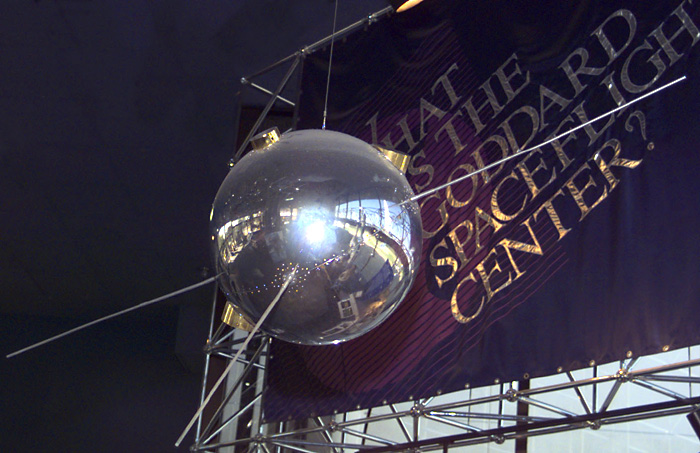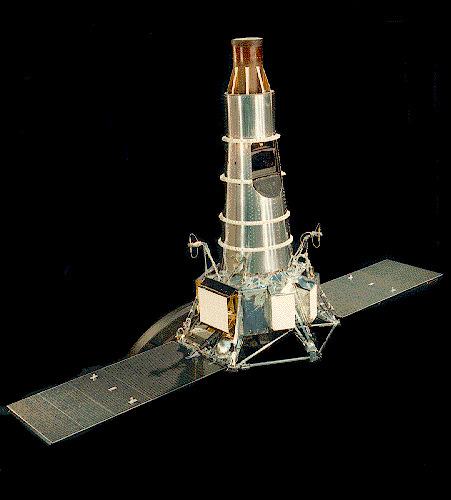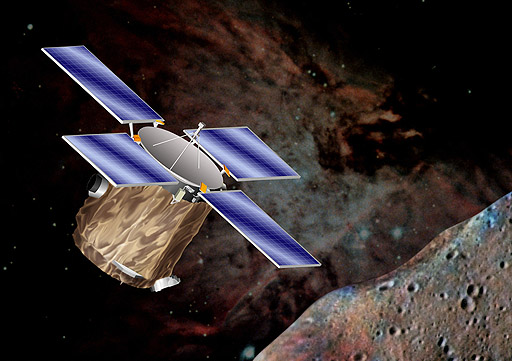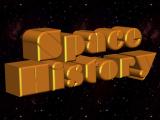If you are not already a subscriber, you are welcome to enter your email address here to sign up to receive the Space History newsletter on a daily basis. Under no circumstances will we release your legitimate email address entered here to outside persons or organizations, and it will only be used for mailing the specific information you have requested.
| Enter your email address here: |
Unsubscribe instructions are included in every newsletter issue in case you decide you no longer wish to receive it.
Note: We record the IP address from which subscriptions are entered to help prevent SPAM abuses.
Race To Space
Someone will win the prize...
... but at what cost?
Visit RaceToSpaceProject.com
to find out more!
1600
Died, Giordano Bruno, advocate of the Copernican heliocentric theory, burned at a stake
ref: en.wikipedia.org
1791
Charles Messier added M83 (spiral galaxy in Hydra) to his catalog, which was previously discovered by Nicholas Louis de Lacaille on 23 February 1752.

M83 (Southern Pinwheel Galaxy, spiral in Hydra)
NASA, ESA, Hubble (STScI/AURA), William Blair (JHU)
Source: Wikipedia
ref: messier.seds.org
1868
E. W. Tempel discovered asteroid #97 Klotho; and J. Coggia discovered asteroid #96 Aegle.
1873
C. H. F. Peters discovered asteroid #130 Elektra.
1874
Born, Thomas J. Watson, computer pioneer, first president of IBM Corporation
ref: www-03.ibm.com
1874
Died, L. Adolphe J. Quetelet, Belgian astronomer and sociologist
ref: en.wikipedia.org
1875
Died, Friedrich Wilhelm August Argelander, astronomer, cataloguer of 324,188 stars
ref: en.wikipedia.org
1879
J. Palisa discovered asteroid #192 Nausikaa.
1888
Born, Otto Stern, German/US physicist (Stern-Gerlach experiment (spin quantization), Nobel 1943 "for his contribution to the development of the molecular ray method and his discovery of the magnetic moment of the proton")
ref: www.nobelprize.org
1890
Died, Christopher Sholes, typewriter inventor
ref: en.wikipedia.org
1899
M. Wolf and A. Schwassmann discovered asteroid #443 Photographica.
1903
R. S. Dugan discovered asteroid #506 Marion.
1925
V. Albitzkij discovered asteroid #1330 Spiridonia.
1939
Y. Vaisala discovered asteroid #2535 Hameenlinna.
1942
L. Oterma discovered asteroid #2857.
1950
S. Arend discovered asteroid #2265 Verbaandert; and K. Reinmuth discovered asteroids #1611 Beyer, #1719 Jens, #2572, #3295 Murakami and #3440.
1959 16:05:00 GMT
The first weather satellite, Vanguard 2, was launched to measure cloud-cover distribution.

Vanguard 2 satellite, NASA photo
Source: NSSDCA Master Catalog
Vanguard 2 was launched 17 February 1959 to measure cloud-cover distribution over the daylight portion of its orbit. It contained two optical telescopes with two photocells, designed to scan the Earth through spin and orbital motion. Radio communication was provided by a 1 W, 108.03 MHz telemetry transmitter and a 10 mW, 108 MHz beacon transmitter that sent a continuous signal for tracking purposes. A command receiver was used to activate a tape recorder that relayed telescope experiment data to the telemetry transmitter. Both transmitters functioned normally for 19 days, but telemetry data were poor because of an unsatisfactory orientation of the spin axis. Power for the instrumentation was provided by mercury batteries. Vanguard 2 has an expected orbital lifetime of 300 years.
ref: nssdc.gsfc.nasa.gov
1965 17:05:00 GMT
NASA launched the Ranger 8 Lunar impact mission which transmitted 7,137 Lunar pictures.

Ranger 8 Lunar impact probe, NASA photo
Source: NSSDCA Master Catalog
Ranger 8, launched 17 February 1965, was designed to achieve a Lunar impact trajectory and to transmit high-resolution photographs of the Lunar surface during the final minutes of flight up to impact. The spacecraft carried six television vidicon cameras, 2 wide angle (channel F, cameras A and B) and 4 narrow angle (channel P) to accomplish these objectives. The cameras were arranged in two separate chains, or channels, each self-contained with separate power supplies, timers, and transmitters so as to afford the greatest reliability and probability of obtaining high-quality video pictures. No other experiments were carried on the spacecraft. Impact occurred on 20 February 1965 at 9:57:36.256 UT after 7,137 Lunar pictures had been returned.
ref: nssdc.gsfc.nasa.gov
1966 08:38:00 GMT
The French satellite Diapason D-1A was launched from Hammaguir, Algeria into Earth orbit to make geodetic measurements.
ref: nssdc.gsfc.nasa.gov
1978
Hans-Emil Schuster discovered asteroid #2608 Seneca.
ref: en.wikipedia.org
1986
Robert Harris flew a Grob 102 Standard Astir III sailplane from Carson City, California and set a world glider altitude record of 14,899 m (49,009 ft) without wearing a pressure suit, using five layers of clothing against minus-80 degree temperatures.
ref: www.latimes.com
1996 20:43:27 GMT
NASA launched the Near Earth Asteroid Rendezvous (NEAR) mission to asteroid 433 Eros.

Near Earth Asteroid Rendezvous - Shoemaker (NEAR Shoemaker) space probe, NASA illustration
Source: NSSDCA Master Catalog
ref: nssdc.gsfc.nasa.gov
1998
Voyager 1 surpassed Pioneer 10 as the man-made object most distant from the Sun.
ref: voyager.jpl.nasa.gov
We are going to run out of oil!
Visit SpacePowerNow.org
to help fix the problem.
SpacePowerNow.org - For Human Survival
Please help support our efforts by shopping from our sponsors.
This newsletter and its contents are Copyright © 2006-2026 by The L5 Development Group. All rights reserved. - Publication, in part or in whole, requires previous written permission. - Academic or personal-use citations must refer to http://L5Development.com as their source. Thank you for your cooperation.
Space History Department
Resources
The L5 Development Group Home Page
The L5 Development Group Keyword Access System
Space History for February 17 /
Webmaster /
Script last modified August 23, 2018 @ 6:05 am
Copyright © 2006-2026 by The L5 Development Group. All rights reserved.
Hosted by FKEinternet




